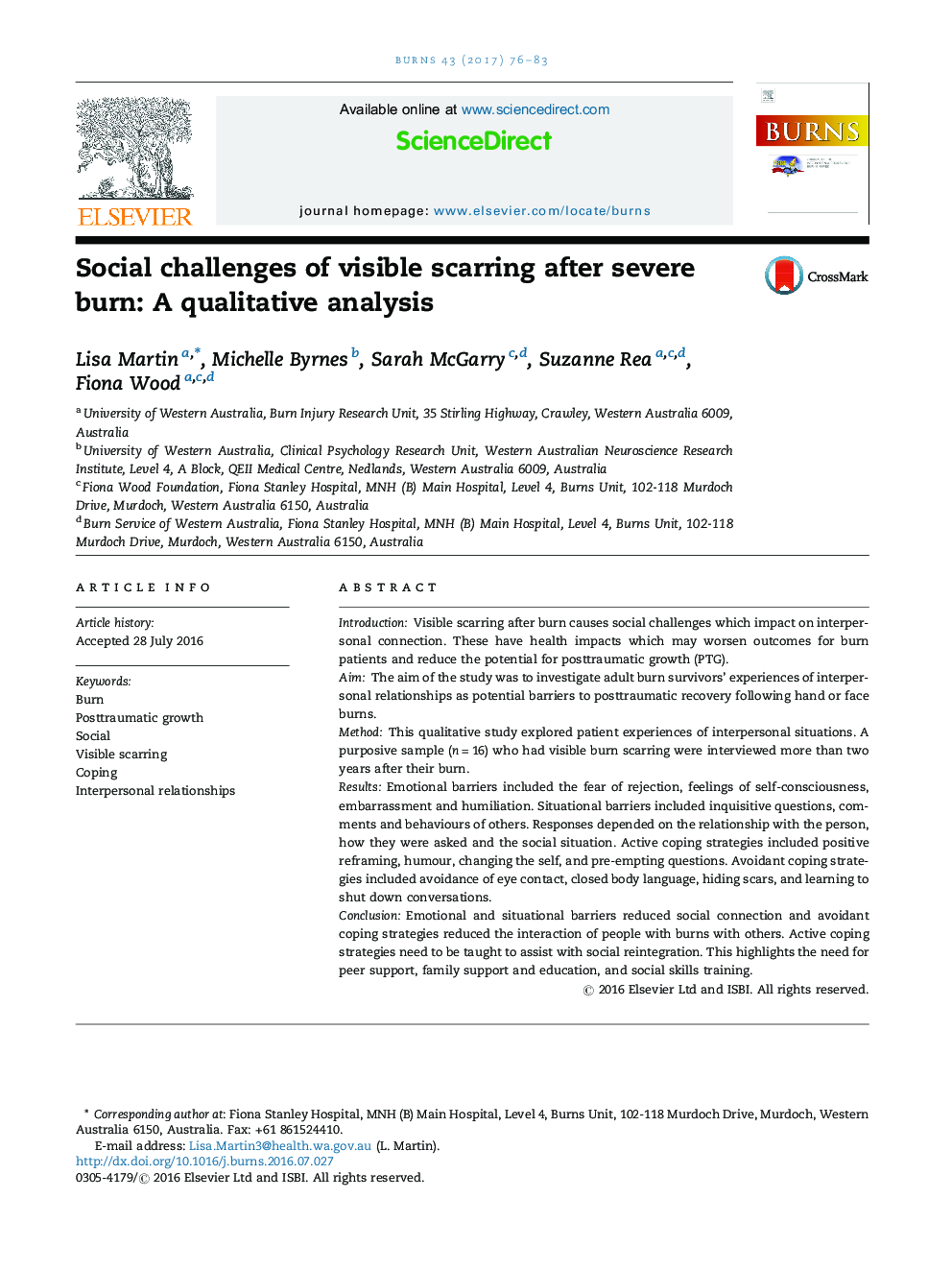| کد مقاله | کد نشریه | سال انتشار | مقاله انگلیسی | نسخه تمام متن |
|---|---|---|---|---|
| 5636110 | 1406662 | 2017 | 8 صفحه PDF | دانلود رایگان |
- Unwanted questions or comments can be met by adult burn survivors with visible scars.
- 3 continua affect response: stranger/friend; hostile/friendly; brief/long encounter.
- Emotional factors reduce interpersonal connection which may lead to social isolation.
- Thus they could be a barrier to PTG and an additional risk for PTSD.
- Humour, gratefulness, self-compassion and social support help with coping.
IntroductionVisible scarring after burn causes social challenges which impact on interpersonal connection. These have health impacts which may worsen outcomes for burn patients and reduce the potential for posttraumatic growth (PTG).AimThe aim of the study was to investigate adult burn survivors' experiences of interpersonal relationships as potential barriers to posttraumatic recovery following hand or face burns.MethodThis qualitative study explored patient experiences of interpersonal situations. A purposive sample (n = 16) who had visible burn scarring were interviewed more than two years after their burn.ResultsEmotional barriers included the fear of rejection, feelings of self-consciousness, embarrassment and humiliation. Situational barriers included inquisitive questions, comments and behaviours of others. Responses depended on the relationship with the person, how they were asked and the social situation. Active coping strategies included positive reframing, humour, changing the self, and pre-empting questions. Avoidant coping strategies included avoidance of eye contact, closed body language, hiding scars, and learning to shut down conversations.ConclusionEmotional and situational barriers reduced social connection and avoidant coping strategies reduced the interaction of people with burns with others. Active coping strategies need to be taught to assist with social reintegration. This highlights the need for peer support, family support and education, and social skills training.
Journal: Burns - Volume 43, Issue 1, February 2017, Pages 76-83
